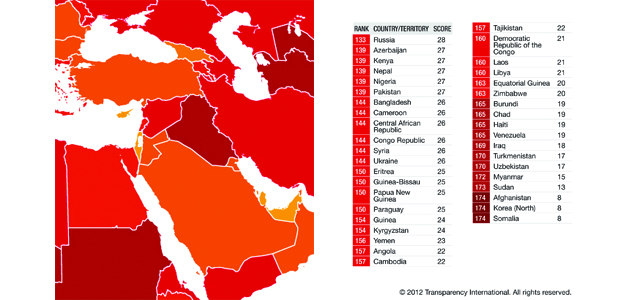$800 million. That’s the staggering amount of money said to be unlawfully transferred out of Iraq every week.
Last month marked the ten year anniversary of the start of the occupation of Iraq by coalition forces. The aftermath of war and occupation has been ravaging well after the withdrawal of foreign troops.
The US Special Inspector General for Iraq Reconstruction has investigated corruption for nearly a decade involving US funds and recently released a final extensive report called Learning from Iraq.
The report quotes a former Iraqi Minister:
Corruption today is worse than ever. It’s a disaster.”
In one specific case, highlighted in the report, senior US military officials were involved in a sordid money laundering scheme leading eventually to eight convictions.
Here’s what happened in that case.
A year into the start of the war in Iraq, Robert Stein was working for the Coalition Provisional Authority’s office in Hillah, a small town about 100km south of Baghdad.
Stein abused his position as comptroller by awarding construction contracts to a specific company. Company officials in turn paid him handsomely in gifts and kickbacks totalling over $8.6 million. The bribes included expensive cars, business class tickets, and jewellery. They even used Swiss and Romanian bank accounts to launder money. The houses and schools the company was supposed to build were delayed significantly.
The continuing cost of war
The final report on a decade marked by almost daily bombings and violence across Iraq details how life for the average Iraqi citizen has not improved despite coalition officials pouring $60 billion into reconstruction projects.
Between 2005-2010 Iraq’s illicit outflows amounted to $63.6 billion and for the past decade it has ranked towards the bottom of the corruption perceptions index coming in at 169 last year.
The average Iraqi household only receives electricity for seven hours a day and water is a scarce commodity with a sixth of the population struggling to find clean drinking water for more than two hours during the day.
The report confirms the scale of the damage:
After the 2003 invasion, the Iraqi government had difficulty providing basic public services to its citizens. Schools and hospitals were destroyed, damaged, or closed.”
Rebuilding lives
This is the grim reality of a fragile state with crippled institutions unable to provide basic services to its citizens compounded by rife corruption within its bodies and decades of waste and mismanagement of the public purse from years of authoritarian rule, exacerbated by sanctions and wars.
The resource rich country is the third largest oil exporter in the world that only committed to complying with the Extractive Industries Initiative Transparency on 12 December 2012. The EITI promotes transparency in financial flows of extractive industries.
Transparency in the oil sector in the coming years is necessary to harness this resource to rebuild functioning state institutions and better serve its citizens whose lives have often been traumatised.
Carousel image: Flickr / Creative commons: The U.S. Army
















 Connect with us on Facebook
Connect with us on Facebook Follow us on Twitter
Follow us on Twitter